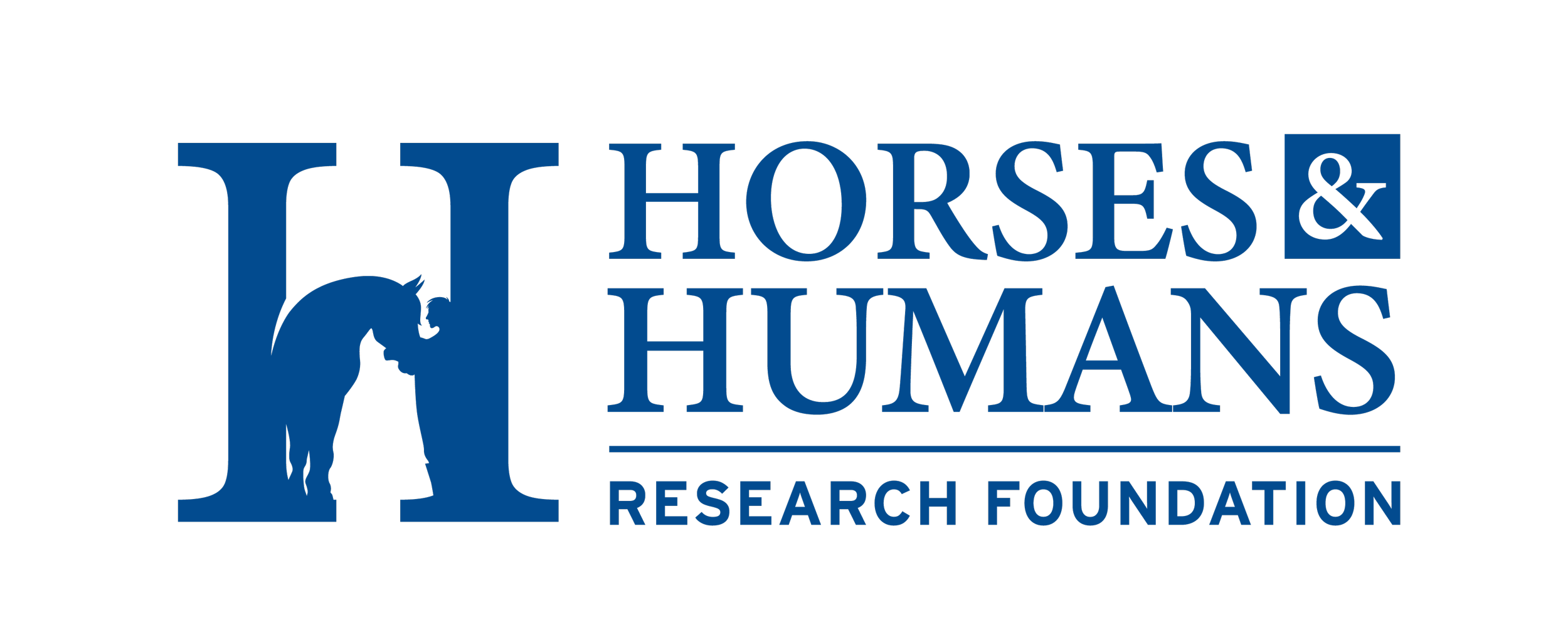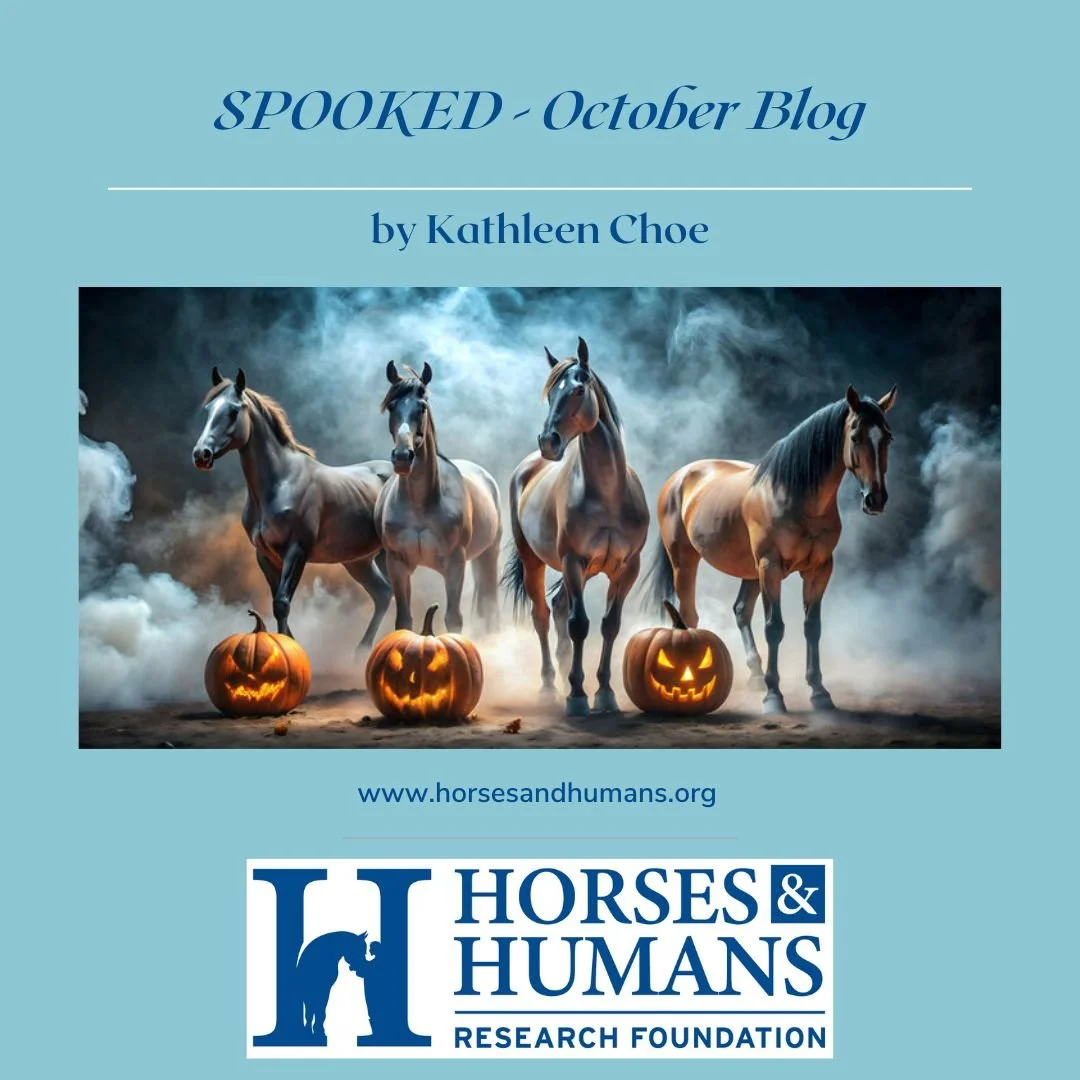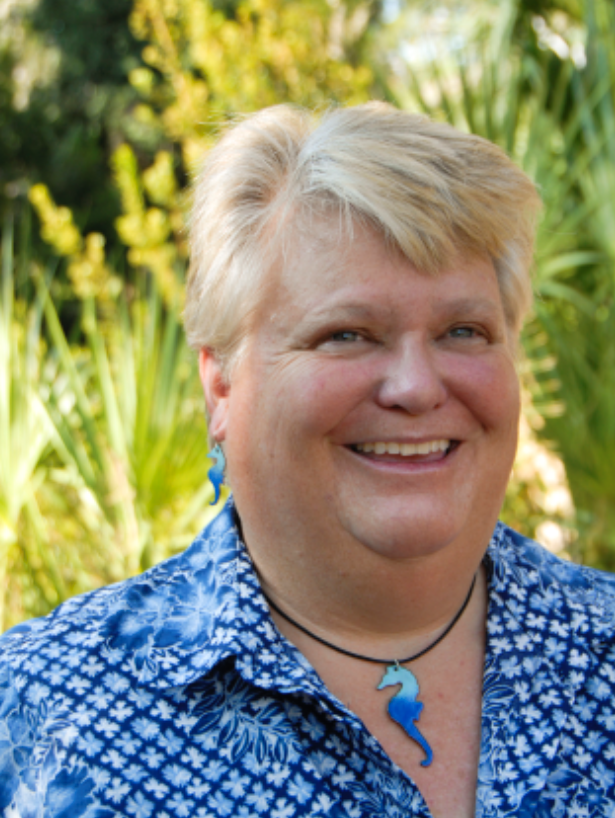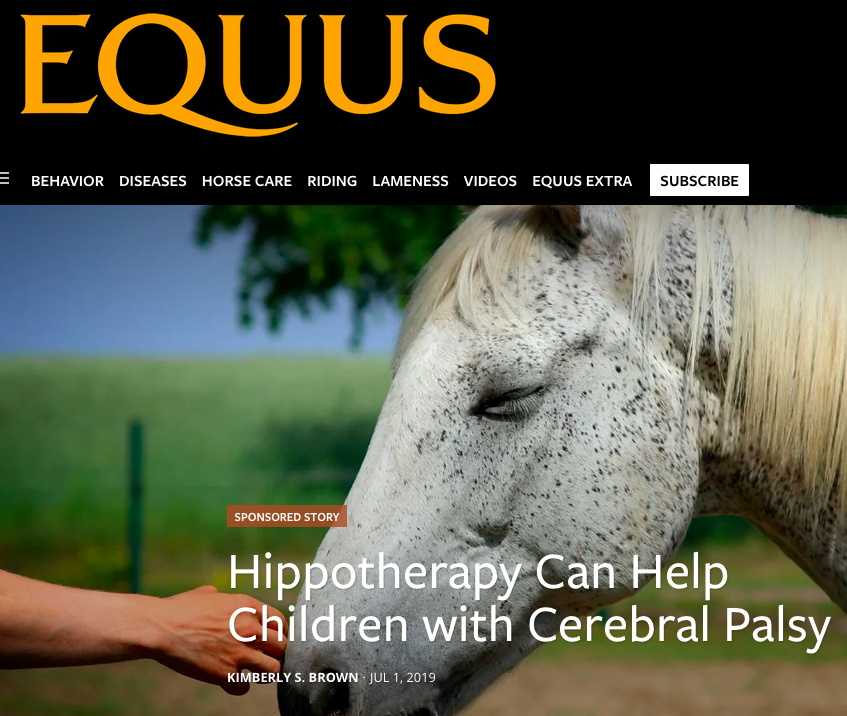John Kundtz (HHRF board member) has been working hard behind the scenes on a podcast about EAS and Trauma for HHRF.
John's podcast partner Jan released the podcast Saturday and it is available wherever you listen to podcasts. You can use this link to navigate the show at pod.link/1434797392 or search for the apex podcast and look for the black triangle Apex Logo.
John published a Medium Article entitled Why Equine Assisted Services Matter. He also posted on The Disruptor LinkedIn page
John asked one favor (maybe 3) - If you would subscribe to The Disruptor Channel on YouTube and follow their LinkedIn page - that would be great - The YouTube channel is just launching so the more subscribers they can get the better. They will be publishing the video of the show on YourTube once completed.
The third thing would be to subscribe to The Apex Podcast as well.
2016 Funded Project Publication
Welcome Newest HHRF Volunteer and Board Members
Support our Virtual Riders
First Education Conference in October
Sign up for next Webinar
Chagrin Falls, Ohio, July 1, 2021. Horses and Humans Research Foundation (HHRF) welcomes our newest Board member, Jane Davis, LMSW, of Woodstock, NY.
Read the full Press Release
HHRF 2019 Research Grant Update
HHRF Virtual Championship
In Memory of Judith Lightfoot
Calling all Researchers! - Applications due June 30, 2021, Up to $50,000 available
and more…
Oct 30 & 31 in the NC mountains near Tryon.
Happy St Patrick’s Day!
Spring is around the corner and HHRF has lots of exciting activities and news to share.
First, the HETI (Horses in Education and Therapy International) 2021 Seoul 17th International Congress registration is open. The 17th HETI International Congress will be held June 8-10, 2021. Registration…More
HHRF is looking forward to a year of hope and accomplishments. We have been working hard on developing agreements with like-minded organizations, planning educational opportunities… Read More
Nancy is a life-long horse person having shown western, hunters, jumpers, and Tennessee Walking Horses, which she has also bred and trained. She was an avid 4-H'er. She has been leading EAAT organizations for 12 years, including being part of several research teams. She is a Walking Horse Owners and Exhibitors Association Certified Judge and a PATH Equine Specialist in Mental Health and Learning. She received her B.S. in psychology from Old Dominion University and went onto become a family therapist as well as a policy analyst. She is currently working on her MBA from St. Andrews University. ·
“Outcomes are validated by research and as equine assisted activities and therapies become increasingly well-known it is crucial that research that leads to the development of best practices be supported and disseminated. Relationships with horses are life-changing; now we have to gather the evidence!”
Wow, what a great few months of learning about HHRF and all the reasons that research is so important to our industry. We are the best kept secret! To share the importance of research with the world, HHRF has undertaken a campaign of awareness… Read More
The report of this HHRF funded study will be available free until January. Click here
Horses and Humans Research Foundation Welcomes New Interim Executive Director, Pebbles Turbeville to the Team
Horses and Humans Research Foundation (HHRF) Announces New Interim Executive Director
Chagrin Falls, OH – October 12,2020 – Horses and Humans Research Foundation (HHRF) is proud to announce that Pebbles Turbeville will be joining the HHRF team promoting the rigorous research of horse-human interactions and their impact on health and wellness. HHRF Board President, Evelyn McKelvie said “We are really excited to have someone as experienced and well known in the industry as Pebbles Turbeville.”
Turbeville is currently working on her Doctorate in Sports Management with an emphasis in leadership. Pebbles received her master’s degree from NC State, and her BA from Columbia College. Previously, she was the Associate Professor and Chair of the Sport Studies Department at St. Andrews University where she has taught over 100 students in the field of Therapeutic Horsemanship. She is and has been an adjunct professor and consultant for other higher education institutions in the field of Equine Studies. Pebbles served on the NARHA Board and on several committees for PATH Intl. She has certifications from PATH International as an Advanced Instructor, a Mentor Faculty, as Associate Faculty for the PATH Intl. Advanced certification and Lead Faculty for Registered On-Site Workshop/Certification and Mentor Training. She has presented at different national, regional, and state conferences on several topics in the Therapeutic Horsemanship field. One of her favorite hobbies is equine and nature photography. Pebbles has been published regionally, nationally, and internationally in American Horse, Dressage Today, Horse Illustrated, PATH Intl. Strides, Horse of Kings, Stable Mates, RDA New South Wales postcards, and the cover of Southeast Equine.
Pebbles has witnessed as well as heard the testimonies of instructors, therapists, participants, and caregivers of the benefits of Equine Assisted Services. She is thrilled at the opportunity to lead HHRF in sharing with the world through research, the unique capacity of the horse to transform lives through horse-human interactions.
Horses and Humans Research Foundation (HHRF) Announces New Strategic Updates and Leadership Changes
Chagrin Falls, OH – April 21, 2020 – Horses and Humans Research Foundation (HHRF), a 501(c)3 organization who funds research on the horse-human interactions, has announced that given the current COVID-19 impact on equine facilities and research activities, as well as the current state of the global economy, it will defer all 2020 grant awards until 2021 and pause their annual Request for Proposals that would normally be issued around this time each year.
In lieu of reviewing grant submissions this spring that highlight evidence-based studies of the horse-human relationship and its impact on health and wellness as has been customary practice for over 15 years, HHRF is investing time in evaluating strategies to advance its mission forward in new and innovative ways.
With a specific focus on trauma care for the grant years of 2020-2021, one significant addition to the organization is a newly formed Education and Communications Committee. Comprised of an elite team of volunteers ranging from medical clinicians, academic faculty, public health and social service professionals, this Committee joins forces with some of the nation’s most respected thought leaders within the equine assisted learning and equine assisted therapy field. This new committee will provide strategic planning support and policy oversight to ensure focus and direction of educational programs and dissemination of “science into the stable” so those facilitating this great work have the benefit of the research that has been and is being completed all the time.
HHRF is also taking this opportunity to create new strategic partnerships to leverage synergies, expand its global impact by building relationships outside the United States, and widen its donor base by offering value to an increased number of stakeholders in the future. Much of this value will come in the form of education and integration of knowledge by bridging the gap between the collected data on outcomes reported from intervention studies and then translating and sharing with the practitioners working with the many populations who benefit from equine-assisted activities and therapies.
The organization is also announcing the departure of Ken Boyden as their Executive Director. “We are appreciative of Ken’s contribution to the organization for the past four years and his leadership has positioned us for our next phase of growth,” states Board President, Evelyn McKelvie. The Board is developing a Task Force to begin the process of selecting a new Executive Director.
The final report is now available from the 2017 HHRF Funded Project entitled “Tracking Kinematic and Kinetic Data during Horse Riding for Optimizing Therapeutic Outcomes". The Principal Investigator was Pilwon Hur, PhD, Texas A&M University, College Station, TX.
“This study is a pilot study investigating the relation between functional improvement due to equine therapy and the interaction between the horses and the patients with Cerebral Palsy (CP). Due to the limited sample size (n=4), we couldn’t definitely make the conclusion. However, the following conclusion is drawn: Walking functional improvement of children with CP is related to the level of interaction between the children with CP and horses. Even though the causal relation is not found yet, it is suggested that encouraging the children with CP the interaction with horses will have positive effect in their functional enhancement.”
From the left to right: Wendy Wood, Robin Gabriels, Nancy Krenek, Molly Sweeney, JoAnne Miller, Caiti Peters, Nancy Paschall
During the recent Professional Association of Therapeutic Horsemanship International (PATH Intl) conference a presentation was made focused on understanding what an Equine Assisted Activities and Therapies Center needs to have in place prior to conducting research so that the research projects do not overly stress the capacity and operations of the Center. A didactic presentation was made, following an extensive Q & A with the presenters Robin Gabriels,PsyD, MA, Nancy Krenek,PT, DPT, HPCS, Prof. JoAnne Miller, Nancy Paschall, and HHRF Founder, Molly Sweeney and additional researchers Wendy Wood, Ph.D., OTR, FAOTA a member of the Horses and Humans Research Foundation’s Scientific Advisory Council, and Caitlin Peters,Ph.D., OTR/L.
The EAAT CENTER RESEARCH READINESS CHECKLIST© combines the prior work of Shoffner, A, Gabriels R. from the Therapeutic Horseback Riding Intervention Manual in Denver, CO, University of Colorado and Children’s Hospital Colorado, and B. Caitlin Peters, Ph.D., OTR/L, and Nancy Paschall, a member of the HHRF Board of Directors. This checklist is available free of charge but cannot be modified without permission.
The overarching themes of the presentation were: 1) honestly assess the factors in the EAAT CENTER RESEARCH READINESS CHECKLIST©; 2) a center not being ready now doesn't mean it will never ready; and 3) learn about current research findings to improve the outcomes for center participants. Completely meeting the Checklist guidelines will help centers to truly be ready, or, alternatively, decide other ways for their organizations to reap the benefits of research. The audience requested additional education about current research findings and learning more about research in general.
FOR IMMEDIATE RELEASE:
Research Grant Awarded to Investigate Psychophysiological Effects of Equine-assisted Therapy on Horses and in Veterans Diagnosed with Post-traumatic Stress Disorder (PTSD)
Chagrin Falls, Ohio, October 23, 2019. Horses and Humans Research Foundation has awarded a $50,000 grant to Principal Investigator, Dr. Laurie McDuffee and her team from Atlantic Veterinary College, University of Prince Edward Island. The purpose of this project, Psychophysiological effects of Equine-assisted therapy on horses and in veterans diagnosed with post-traumatic stress disorder (PTSD), is to explore the efficacy of equine facilitated psychotherapy (EFP) on human-horse dyads through changes in measures of stress hormones and Post-traumatic stress disorder (PTSD) symptoms.
HHRF Board President, Pam Cusick, shares “We are very excited about this study as it includes both physiological measures and standardized psychological tests. These measures will provide depth to the understanding of the horse-human relationship and we eagerly anticipate the results.”
Building on previous research, this study will explore the impact of an 8-week therapy program that partners horses to alleviate stress in veterans diagnosed with PTSD. Researchers will collect data from humans and horses that measure stress using both physical (i.e. cortisol, oxytocin, heart rate data, and standardized assessment) and standardized psychological tests. Together these measures will enable the researchers to better understand how the horse-assisted therapy program influences the recovery of veterans diagnosed with PTSD and related mental health symptoms (i.e. anxiety and depression). Sixteen veterans will receive 8-weeks of therapy (once per week) consisting of grooming and leading a horse under the direction of a registered psychologist. Self-reported information about PTSD symptoms, anxiety, and depression will be assessed at the start of the program, after week 4 of the program, at the end of the program, and two months following the program.
Saliva and blood samples will be taken from veterans and horses during each session. Data analysis will compare data collected at each point in the therapy program. This study will be unique in that data will be collected from humans and horses at the same time to better understand the human-horse relationship during therapy.
Mission: Through sustained investment in rigorous research, HHRF serves as a catalyst to advance global knowledge of horse-human interactions and their impact on health and wellness.
Horses and Humans Research Foundation (HHRF) is dedicated to funding research to investigate the equine-assisted activities and therapies field. Since its founding, HHRF has awarded over $650,000 in professional research efforts led by fourteen research teams. HHRF is a non-endowed foundation dependent solely on donations. To make a donation and/or learn more about this and other Horses and Humans Research Foundation projects visit http://www.horsesandhumans.org
###
Contact: Ken Boyden, JD, EdD, Executive Director
Horses and Humans Research Foundation
PO Box 23367
Chagrin Falls, OH 44022
Email: info@horsesandhumans.org
By Kimberly S. Brown
We horse folk understand the joy and peace of working around our equine partners. Therapeutic riding has been proven to help reduce stress in young adults (ages 14-25) with autism spectrum disorder, according to recent research funded by the Horses and Humans Research Foundation (HHRF).
Those with autism who are transitioning into adulthood face stress daily, and the symptoms of autism become barriers to health and wellness. There has been little previous research into this age group as it relates to therapeutic riding.
A research project headed by Betsy Kemeny, PhD, an assistant professor at Slippery Rock University in Pennsylvania, determined that therapeutic riding could temporarily decrease the stress of young adults with autism. Cortisol levels (an indicator of stress in horses and humans) were statistically decreased in this young adult group involved with therapeutic riding compared to controls.
By Kimberly S. Brown
Hippotherapy offers a lasting, positive impact on children with cerebral palsy.
Children who suffer from the frequent spasms and muscle tensing that come with spastic diplegia cerebral palsy can be helped with hippotherapy, according to research sponsored by the Horses and Humans Research Foundation (HHRF). What is even better is that those positive changes can last for months after hippotherapy treatments end!
The initial question was whether hippotherapy could improve head/trunk stability and upper extremity function in children with spastic diplegia cerebral palsy. The study was conducted by researchers at the Washington University School of Medicine’s Program in Occupational Therapy.
The researchers looked at the ability of the children to keep the head and upper trunk relatively still while the pelvis was in rhythmic motion.






















